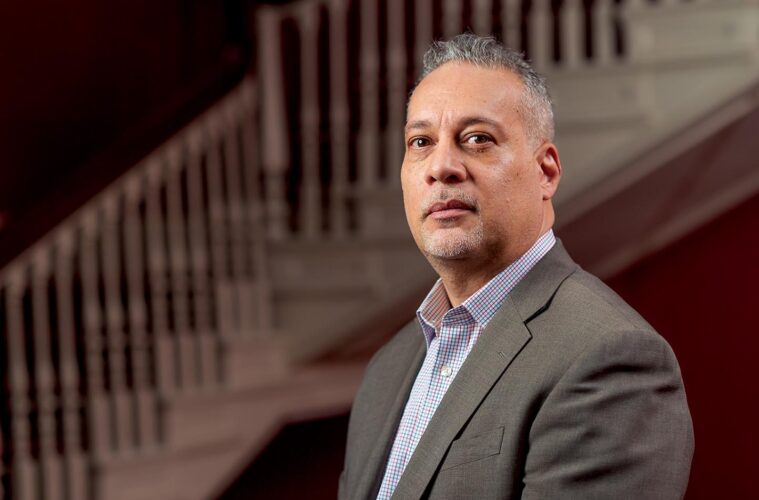Manhattan’s “COVID recovery czar,” Aldrin Rafael Bonilla ’92, will be more than halfway through his yearlong appointment by the time this article publishes. As head of the COVID Recovery and Response Task Force, Bonilla has been leading an eight person team to strategize efforts such as identifying, monitoring, and communicating early warning indicators; pandemic-related infrastructure funding; public health policy messaging; and return-to-work and -school plans for America’s most densely populated county. He was selected by Manhattan Borough President Mark Levine for this role, which he does on a voluntary basis.
In addition to this work, Bonilla is executive vice president for the Fund for the City of New York, leading programming on civic innovation, community planning, public service, and nonprofit leadership.
The COVID recovery czar is not Bonilla’s only public service role — he was also appointed by the New York City mayor and City Council speaker to serve as commissioner and chair of the Equal Employment Practices Commission.
An international relations and political science major at Colgate, Bonilla says, “I’m passionate about social justice issues, public service, and leveraging technology in ways that solve intractable problems in creative ways to improve lives.”
What It Takes to Be Manhattan’s COVID Recovery Czar
The task force is a brain trust, Bonilla explains, looking at how Manhattan can better prepare for COVID-19 resurgences by coordinating with agencies and community stakeholders to address infrastructure, information, and resource and supply needs. In addition, he and his team think through equitable recovery responses across communities, particularly those disproportionately impacted. “Being the head of the task force is a matter of being disciplined in terms of what we are able to tackle and diligent to seek the voices and experiences of those not represented.” Bonilla knows a thing or two about leading city efforts and working across communities toward a common cause, having previously served as Manhattan deputy borough president (2014–20).
Ways to Increase Safety
As this piece was being written, the task force was considering 10 steps to prepare for the possibility of a new wave of COVID-19, calling for continued targeted vaccination campaigns, including those in need of booster shots; improving data collection; and mass distribution of safety supplies.
Also, Bonilla is a proponent of testing wastewater for the presence of the virus. “It’s one of the best indicators we can measure,” he says. “You could detect COVID days, if not weeks, before it becomes a public problem through community spread. Monitoring is cost effective, happens without requiring people to do anything additional, and is a useful innovation to get ahead in public health concerns.”
Biggest Challenge
“People are tired and done with COVID, but COVID is not tired or done with us. If you’re really that tired and done with COVID, you want to take as much precaution as possible so there’s not a resurgence. There’s still a good argument to be made for prudence, particularly as part of the collective. A lot of this is psychological too; people make their own risk calculations, and while policy making is our forte, how people are thinking about things may not be foremost in our calculations. This disconnect has to be bridged.”
He’s Been Serving Since Colgate
“I led efforts around social justice campaigns, participated in fundraisers to aid others, identified guest speakers, and worked in conjunction with a vast array of people to get issues raised and things done.” An example of one of Bonilla’s campus collaborations was changing the name of La Residencia Hispanica to La Casa Pan-Latina Americana. Based on his Colgate study abroad experience in Mexico and Central America, Bonilla joined a group of students who had a collective desire to come up with a more accurately representative name. “For a small group of students (of color), we amplified our concerns, priorities, and issues in a very significant way, beyond just what our numbers would have you think.”
A Word of Advice
Speaking at an April event in New York City for male alumni and students of color, Bonilla conveyed the following message to undergrads: “College is a time for developing yourself intellectually. But there’s this other equally important component that’s about finding your voice, developing leadership, getting to know your talents, honing your social and emotional skills, and working with others to accomplish social change. Lean into the myriad opportunities that Colgate offers around student activities and service-learning opportunities, study abroad, conferences, forums, and student groups.”

